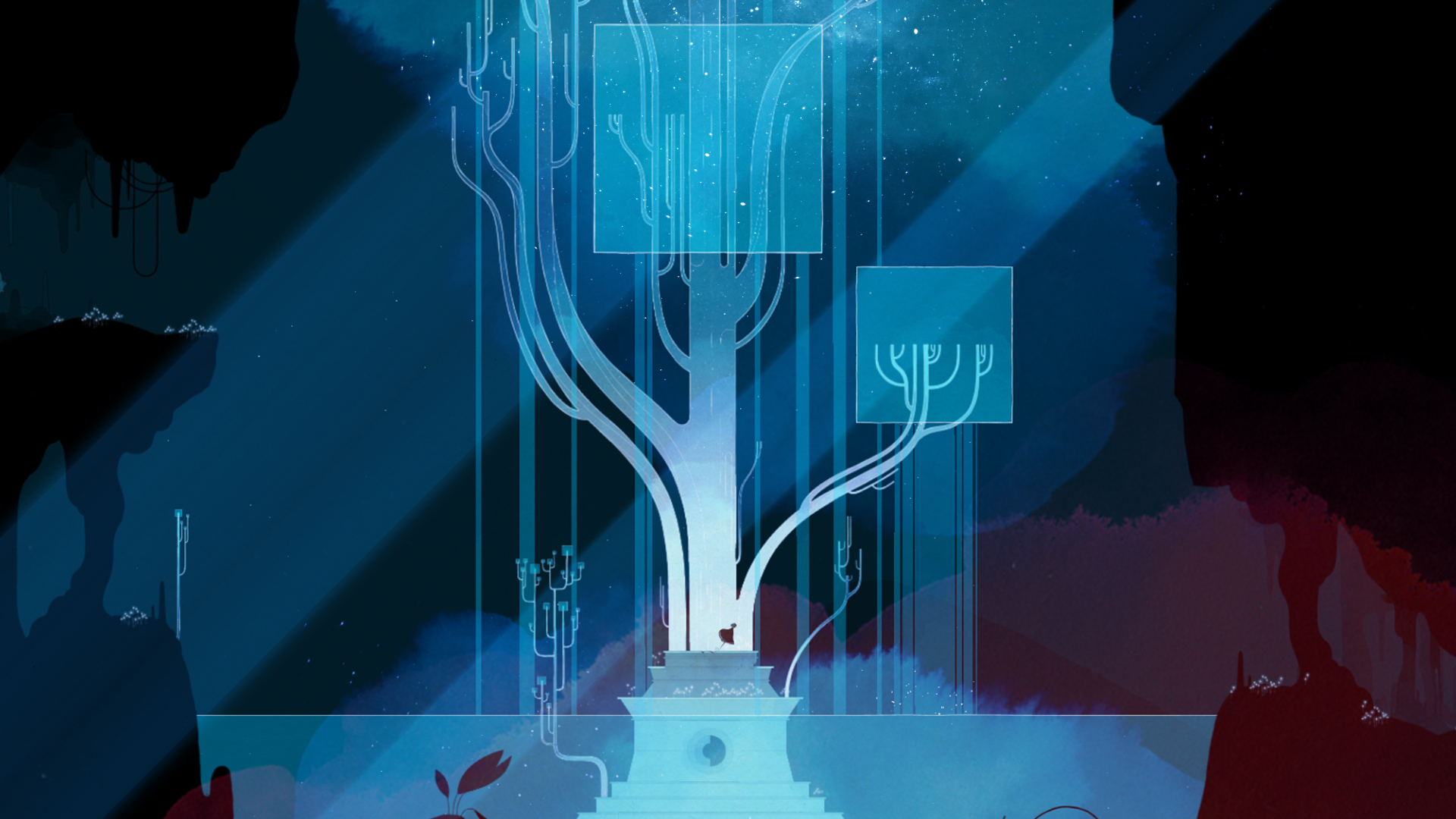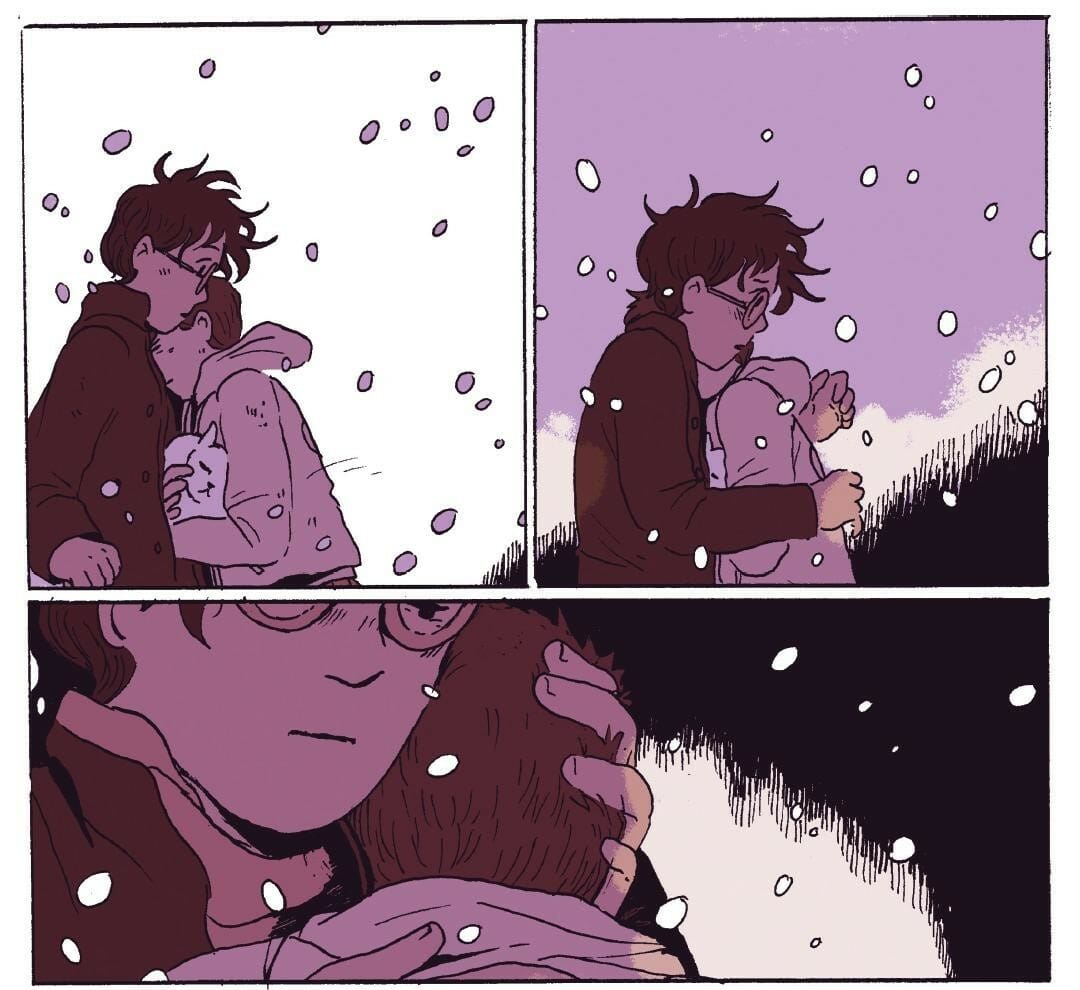
Are you listening? | Empathy according to Tillie Walden
Author
Year
Format
The struggle of coming out, the concept of found family, the journey of healing from trauma: these themes are all dear to Tillie Walden. In her third full-length graphic novel, Are You Listening?, she chooses to explore them with the aid of magical realism.
Born in 1996, Walden had already tackled different genres, going from the autobiographical Spinning to the science fiction On a Sunbeam. In Are You Listening? Walden tries a mixture of both. Texas, Walden’s homeland, is the main landscape of the road trip that makes up most of the graphic novel. Starting as rooted in reality, the story soon takes a metaphorical turn, in which the two protagonists are forced to face creepy and surreal characters.
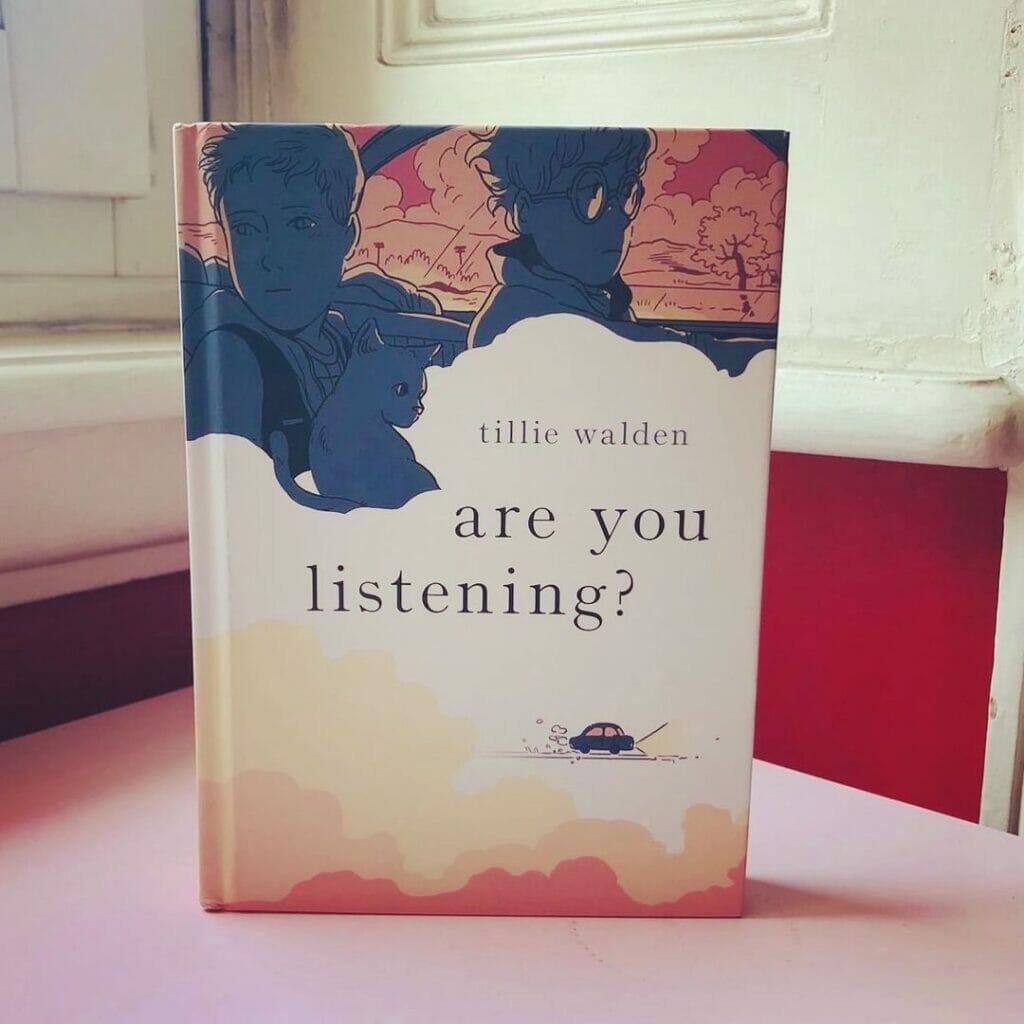
A real place and an imaginary place
Landscapes take up a big part of this comic. Being a long journey shared by two women who barely know each other, the pages are filled with awkward silences, especially at the beginning. The passage of time in a long journey is a tricky subject. Walden marks the time with changing landscapes and Lou and Bea’s stops to eat or rest.
They also have a definite goal: the house of Lou’s grandmother. Lou often checks the map to keep track of their wandering. But as they encounter a cat along the way, this changes. It gets clearer and clearer that the places they are looking for are nowhere to be found. In the second half of Are You Listening?, the story shifts almost completely into a magical setting: this happens gradually, though, as to submerge the reader without overwhelming them.
Magical realism is a genre that is often used to visualize a metaphor. An example are the cracks in Disney’s Encanto, representing the conflicts that emerge within the family. In this case, Bea and Lou’s travel through Texas is a journey through their feelings. Just like a mental journey can be, the path becomes shifting and unstable, often dangerous. As the protagonists attempt to find their way physically, they will also find their way emotionally, finding comfort in listening to each other.
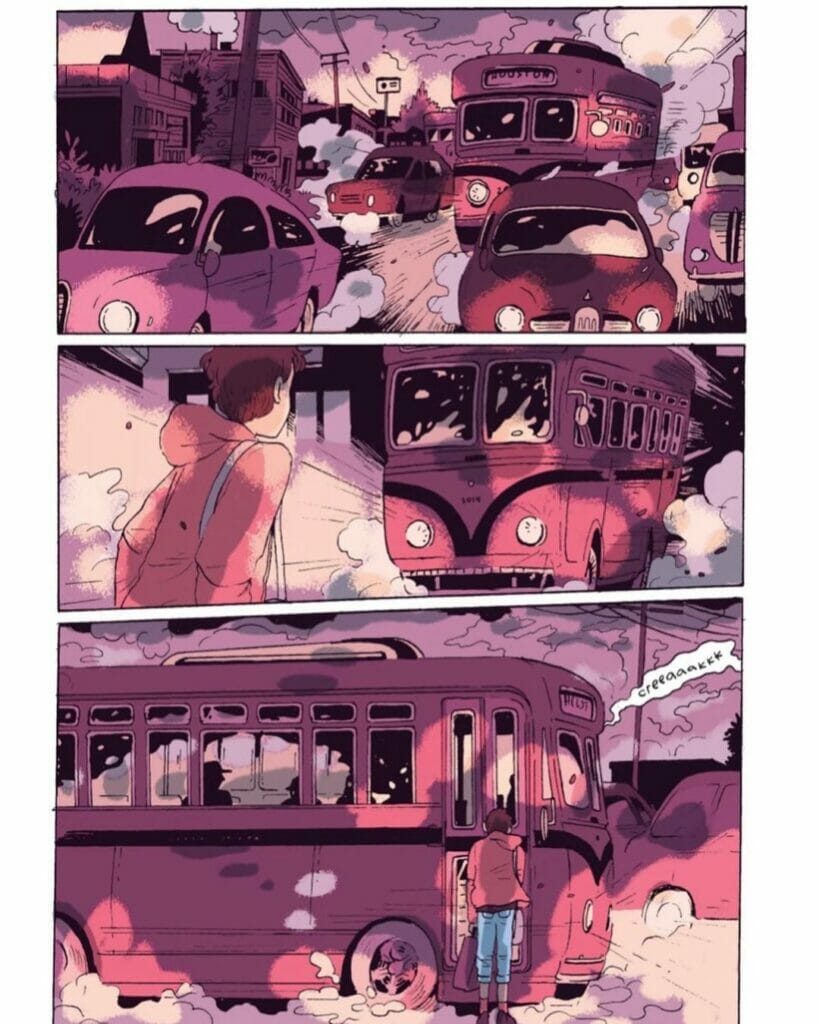
Walden and the burden of being talented
Bea and Lou are both troubled young women. Bea has just become an adult, is standoffish and defensive, and is seemingly running away from her house for no reason. She takes off with no clear goal in her mind. Lou is a gifted mechanic whose mother just died and is overwhelmed by both grief and the weight of her talent. The readers can find in this detail a hint of Walden’s struggle. Walden became famous for her talent at a very young age, and she has expressed the stress of working so hard in her twenties.
In an interview with Publisher’s Weekly, Walden says that she considers Are You Listening? the marking point for a change in her career. “Now comics still occupy a lot of my time, but they definitely don’t occupy all of it. I’m glad I went through everything that I did, all that exhausting touring and stuff, because to know that something’s wrong, you have to just experience it and be able to see it and then change whatever isn’t working. I learned a lot.”
In the first few pages of Are You Listening?, Lou confesses something similar. “I spent my early twenties working so hard and so fast… and I never once asked myself how I was doing it all. And now I’m fucking paralyzed, but I don’t know how to deal with it because I’ve never let myself slow down before.”
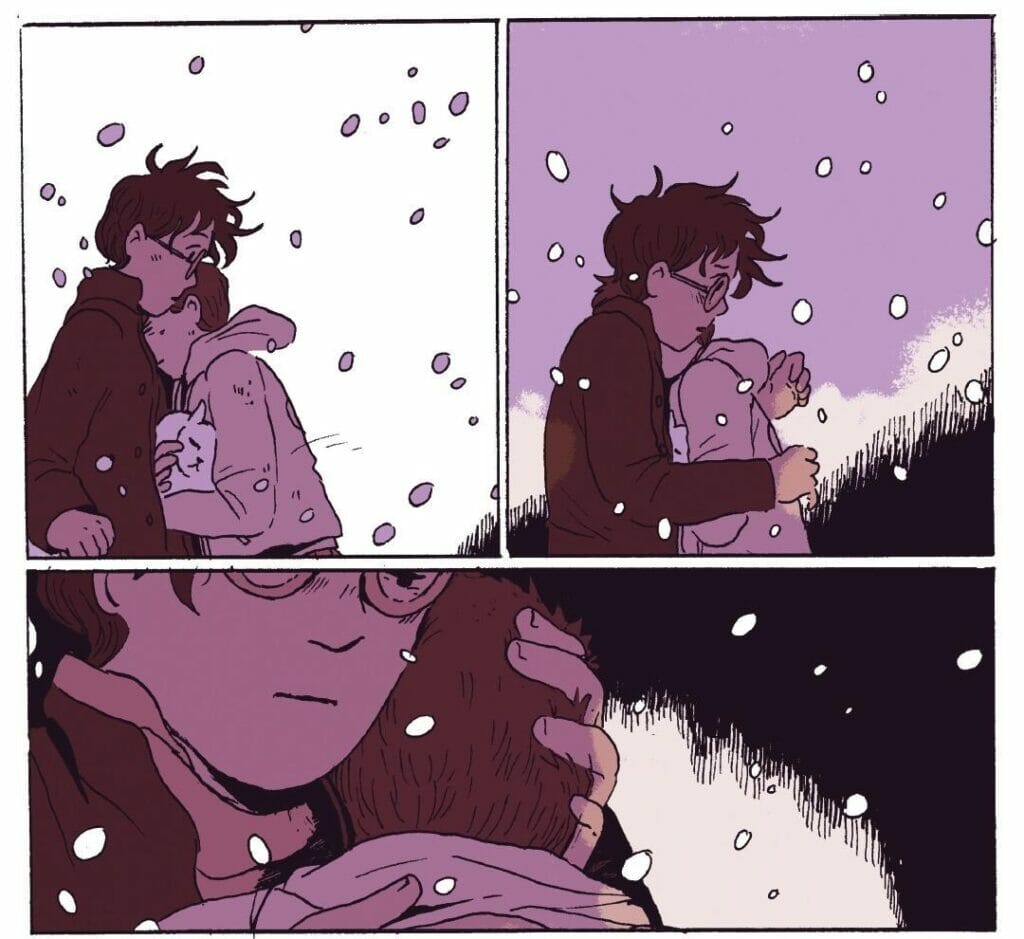
Finding oneself through the eyes of others
Road trips offer many possibilities for reflection and to create a bond between seemingly incompatible characters. Classics such as On the Road or Little Miss Sunshine are perfect examples of this.
When Bea and Lou meet, they barely manage to connect. As both are immersed in their problems, they struggle to connect. They hear each other, but they do not listen to each other. Small fights, snarky remarks, and awkward silences fill their first interactions. But their forced vicinity and their desperate need for comfort will bring them to confess more and more to one another.
In Are You Listening? Walden shows the reader that empathy is not always innate. The two protagonists start by not understanding each other at all, but their determination to reach the end of the (both metaphorical and real) journey will teach them to listen. And by listening, they understand how they are in fact strangely similar. Lou and Bea embody the concept of a found family, a family made up not of relatives, but of chosen friends. This concept is widespread in the LGBTQ+ community, a community of people that often face rejection in their actual families.
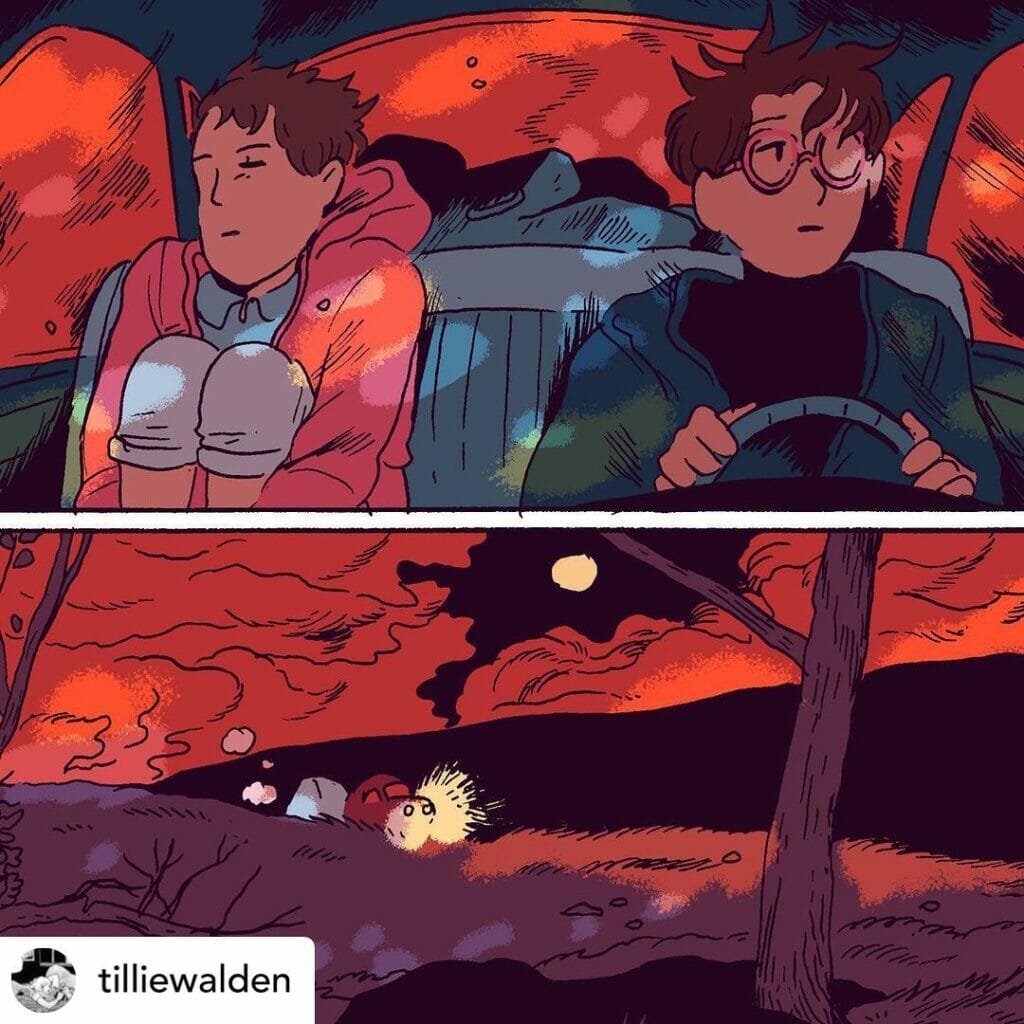
Breaking the comic format
The surreal and eerie atmosphere is not only conveyed by the changing landscapes, but by the colors Walden chooses as well. Are You Listening? is dominated by blues, oranges, purples, and reds. It almost gives out the feeling of a perpetual sunset. The drawing style of this graphic novel is on the simpler side: few, soft lines, barely defining the protagonists and their surroundings. However, by being scarce, details are more powerful. Walden adds them when necessary, for example inside of Lou’s car or on a little cabin in the woods. This redirects the reader’s attention towards the most important places or scenes.
At first, the panels are mostly used in a traditional way. Then, they start to blur during one of the scenes of the protagonists’ silences. And during a dangerous incident, lines become fragmented and jagged, only to return to normal when the danger has passed. From then on, the use of panels becomes more and more creative. For example, division lines disappear in the closest moments between the two characters. Or, in a scene in which Bea talks vaguely about a traumatic event, panels become messy and airy, giving the idea of listening to a confusing dialogue.
Are You Listening? is an experience of empathy and understanding. With its features, the graphic novel creates a deeply emotional story, that granted Walden an Eisner award in 2020.
Tag
Buy a ☕ for Hypercritic










